第124章 Chapter 13 Survivals of the Non-Invidious Interest
"Classic" always carries this connotation of wasteful and archaic, whether it is used to denote the dead languages or the obsolete or obsolescent forms of thought and diction in the living language, or to denote other items of scholarly activity or apparatus to which it is applied with less aptness. So the archaic idiom of the English language is spoken of as "classic"
English. Its use is imperative in all speaking and writing upon serious topics, and a facile use of it lends dignity to even the most commonplace and trivial string of talk. The newest form of English diction is of course never written; the sense of that leisure-class propriety which requires archaism in speech is present even in the most illiterate or sensational writers in sufficient force to prevent such a lapse. On the other hand, the highest and most conventionalized style of archaic diction is -- quite characteristically -- properly employed only in communications between an anthropomorphic divinity and his subjects. Midway between these extremes lies the everyday speech of leisure-class conversation and literature.
Elegant diction, whether in writing or speaking, is an effective means of reputability. It is of moment to know with some precision what is the degree of archaism conventionally required in speaking on any given topic. Usage differs appreciably from the pulpit to the market-place; the latter, as might be expected, admits the use of relatively new and effective words and turns of expression, even by fastidious persons. A discriminative avoidance of neologisms is honorific, not only because it argues that time has been wasted in acquiring the obsolescent habit of speech, but also as showing that the speaker has from infancy habitually associated with persons who have been familiar with the obsolescent idiom. It thereby goes to show his leisure-class antecedents. Great purity of speech is presumptive evidence of several lives spent in other than vulgarly useful occupations; although its evidence is by no means entirely conclusive to this point.
As felicitous an instance of futile classicism as can well be found, outside of the Far East, is the conventional spelling of the English language. A breach of the proprieties in spelling is extremely annoying and will discredit any writer in the eyes of all persons who are possessed of a developed sense of the true and beautiful. English orthography satisfies all the requirements of the canons of reputability under the law of conspicuous waste.
It is archaic, cumbrous, and ineffective; its acquisition consumes much time and effort; failure to acquire it is easy of detection. Therefore it is the first and readiest test of reputability in learning, and conformity to its ritual is indispensable to a blameless scholastic life.
On this head of purity of speech, as at other points where a conventional usage rests on the canons of archaism and waste, the spokesmen for the usage instinctively take an apologetic attitude. It is contended, in substance, that a punctilious use of ancient and accredited locutions will serve to convey thought more adequately and more precisely than would be the straightforward use of the latest form of spoken English; whereas it is notorious that the ideas of today are effectively expressed in the slang of today. Classic speech has the honorific virtue of dignity; it commands attention and respect as being the accredited method of communication under the leisure-class scheme of life, because it carries a pointed suggestion of the industrial exemption of the speaker. The advantage of the accredited locutions lies in their reputability; they are reputable because they are cumbrous and out of date, and therefore argue waste of time and exemption from the use and the need of direct and forcible speech.